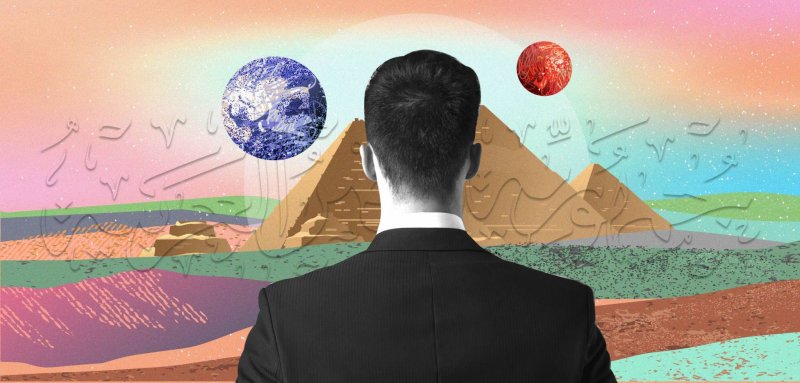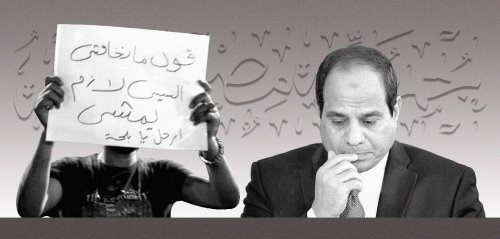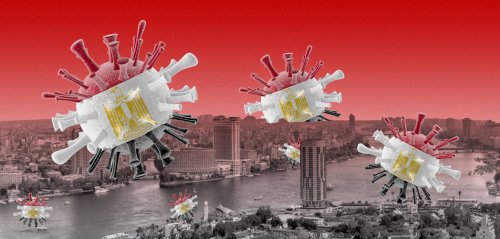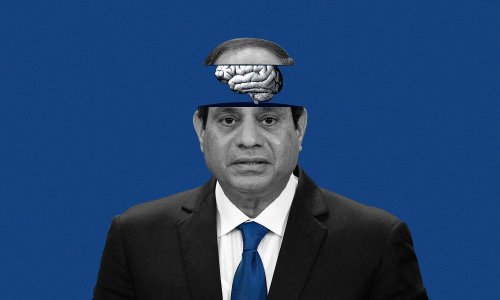Totalitarian systems understand that controlling information and education is synonymous with controlling people. To overcome the dynamic, one must break that politicized wiring.
But progressives and revolutionaries in Egypt have consistently failed to offer an executable alternative route. Specifically, when it comes to medium- and long-term planning those muscles are not atrophied- they are nonexistent. Often lacking in both practical and theoretical governance experience, those applying for the position of agents of change find themselves where Egyptian revolutionaries found themselves in the transitionary months post 2011 revolution. Whereas the organized Muslim Brotherhood and military had clearly defined road maps, progressives put forth nothing but dreams and slogans. While many in the deeply fractured opposition in the Egyptian diaspora struggle with issues of confidence, naivete and sloganeerism, none have yet to present a viable way forward. That way forward begins by employing a reverse brain drain, by recognizing the strength of millions of Egyptians who acquired the ultimate weapon: Education. How you transform that invisible raw power into tangible planning is central to realistic hopes for better days for Egypt and Egyptians. That monolith, a Ministry of the Future (MOF) must become a compass: for the people by the people.
On Egypt’s need for a “Ministry of the Future”, a hub for transforming raw power into tangible plans for better days for Egyptians, a “For the People, By the People approach” that Egyptians themselves need must conquer and reverse the brain drain.
Before we get there, we must locate the rancid waters which put out the fire of prosperity. Central to the concept of MOF is thought, creative, independent, and intellectually mobile paradigms tethered to minds that refuse regressive proclivities and, conservative governance. The silencing of academic voices and the systemic arrest of academics must become a dynamic of the past if Egypt is to realize its dreams of the future.
Just this past month, there were two explicit instances of anti-intellectual authoritarianism. First, a favorite of the regime, Nabila Makram, Minister of Immigration and Egyptian expatriates, lobed in the first fireball “Egyptian academics being educated abroad are the most dangerous sector of Egyptian immigrants” she declared with no hint of irony. A few days later, Egyptian academic, Dr. Alia Mosallam, upon arriving from Berlin with her family to Cairo’s airport was intercepted by the regime’s crudest sledgehammer, State Security. She only languished in their grip for 24 hours, a lucky outcome for the academic as many before her, Like Patrick George Zaki, an Egyptian Initiative for Personal Rights (EIPR) researcher and graduate student, and graduate students Ahmed Samir Santway, Walid Shobki continue to suffer in Sisi’s jails . In an intellectually pugnacious PHD dissertation Dr. Mosallam, adroitly, pointed to the long history of military Egyptian regimes quieting discourse with the eraser of “silence”. During Nasser’s time, she explained, “songs capture in moments of political imagination what official historical narratives may not. Furthermore…these songs reveal silences imposed by state narratives,”. There are few examples more poisonous to academic freedom than the murder of Guilio Regeni by Egyptian security forces, examples are both ample and systemic. It is this “silence” which this brutal regime seeks to ferment- one which must be broken.
This is a battle of truth vs lies, thought vs. anti thought, imagination vs. dictation. For a nation which continues to rank near the bottom in education, per a 2017 UNICEF study, changing this polemic is nothing short of a question of life and death.
Prototypical modes of ministerial governance, generally, govern by sector: finance, labor, foreign affairs etcetera, but change is required if Egypt, is to leap forward- once freed from dictatorial rule. What that could, and I believe should, mean, is a powerful independent think tank like institution called the Ministry of the Future, with ministerial powers and a carte blanche from the highest reaches of power. Rather than a pyramidical structure where the minister doles out orders and the subordinates robotically execute, Egypt needs a democratic intellectual synchronicity powering the way.
Why a Ministry of the Future? Intellectual independence and discourse are always invisible at the top ranks of totalitarian systems. MOF would tackle that beehive head on. In essence, functioning as a ministerial cabinet dislodged from the political machinations of the governing mainstream. This has the effect of dislodging the SUV from the mud of a system that has only known order delivery and execution during decades of military rule.
This change in vision must be anchored in understanding the past and its numerous errors. Original thought must be embraced, not feared. Nomination to the MOF would be outside the purview of presidential powers to insure intellectual and policy independence. Instead, an Egyptian National Security Council (ENSC), made up of various socio-economic political wings, would nominate and select the various components to this powerhouse of change. Made up of women and men, spanning the spectrum age-wise, educated both internationally and within Egypt. The crucial component would be a breadth of expertise combined with a laser focus on understanding of the necessity of the concept of 21st century solutions for Egyptian problems, old and modern.
Antiquated thinking would tend to gravitate towards the names of academic and professional stars such Dr. Essam Heggy of NASA, the British educated Dr. Magdy Yaacoub, Dr. Khaled Fahmy of Oxford fame. While noting the stark absence of Egyptian female scholars and professionals with the preeminence of their male counterparts, it should be explained that these ‘’stars’’ are not the target of the MOF. The way forward must be lined with a belief in new minds whose resumes align perfectly with Egypt’s cornucopia of poverty, education, water, and economic malaise. MOF’s mechanisms and bylaws would be constructed to annihilate the possibility of nepotism and political alliances
Additionally, the MOF needs to function on multiple levels: An open intellectual apparatus for the service of the nation which formulates policies while working with a clear eye towards research and development, with personnel at its peripheries able to execute its vision. Keep in mind that Egypt, in its current construction, only allocates 0.724 % of its budget to research and development , per the World bank. This must change. A significant enough portion of the national education budget would need to be allotted to the body. Of paramount importance, political must transform theory into reality while communicating the centrality of the MOF to Egypt’s national security to Egyptians.
Egypt’s brilliants minds, like jewels strewn on the Nile’s bank and in diaspora have endless knowledge and passion. But brilliant minds need a synchronous political climate and an unyielding political will
For those who would argue that such a plan would require a highly developed and wealthy educational system to raise the playing field producing these minds, I say while that is ideal, the project should begin as soon as the political climate is ripe. Change needs to be pushed forward. Change, itself, is the very best agent of change.
There are brilliants minds, jewels strewn on the Nile’s bank and in diaspora that have endless knowledge and passion.
But brilliant minds need a synchronous political climate and an unyielding political will.
Raseef22 is a not for profit entity. Our focus is on quality journalism. Every contribution to the NasRaseef membership goes directly towards journalism production. We stand independent, not accepting corporate sponsorships, sponsored content or political funding.
Support our mission to keep Raseef22 available to all readers by clicking here!
Interested in writing with us? Check our pitch process here!






